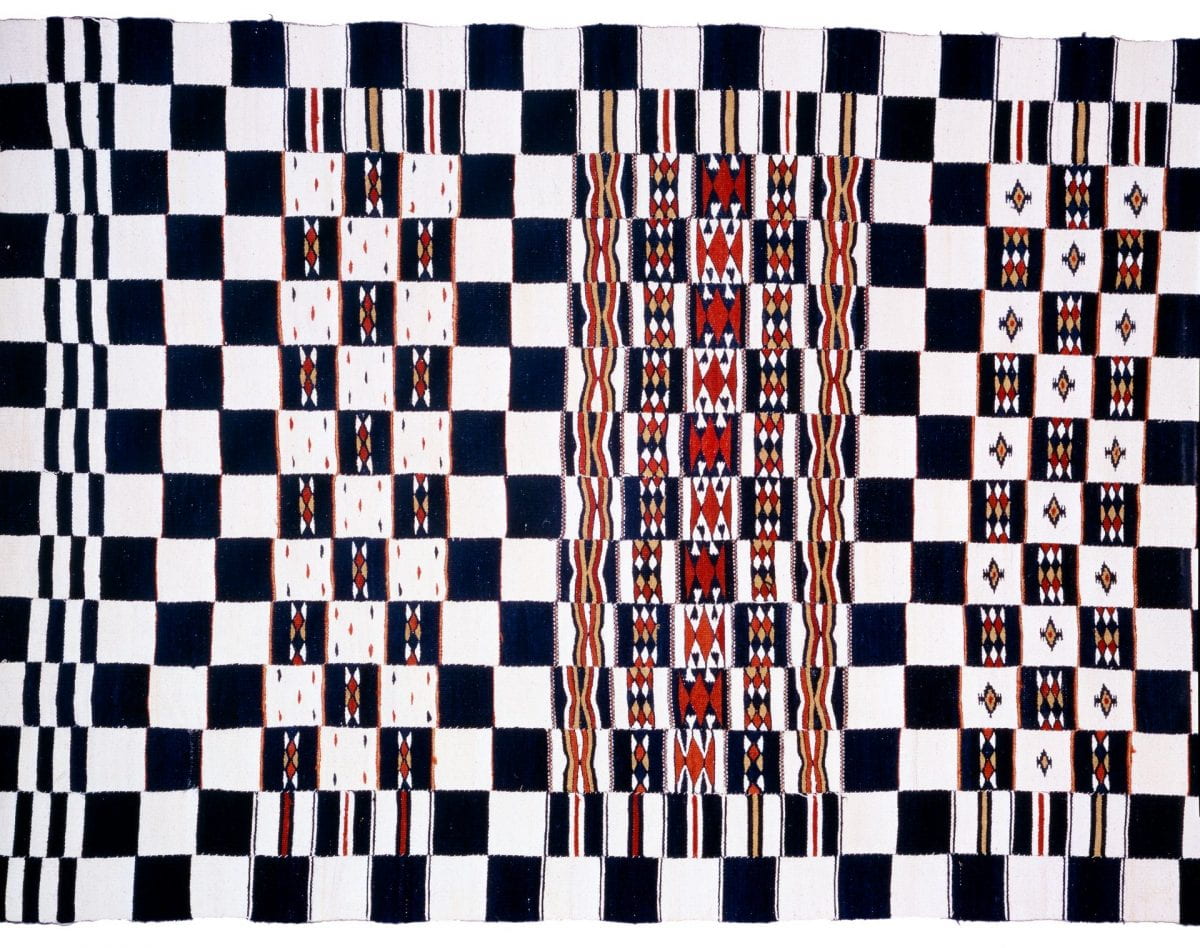The Niger River flows north across the landlocked country of Mali, then switches course, arching south just past the city of Timbuktu. Known as the Niger Bend, this area was historically a center of trade, where Saharan camel caravans would transfer their goods to boats on the Niger.
The nomadic Tuareg people were among the many groups who regularly passed through this hub, setting up camp along the river. This beautiful and complex woven panel (arkilla jenngo) was designed to hang inside or outside one of their tents. The word arkilla means mosquito net: The panel offers protection against the harsh mosquito-laden environment.
The Tuareg are highly skilled leather crafters, but they do not weave. Instead, they commissioned these valuable textiles from specialized male Fulani weavers (Fulbe). A Fulbe weaver might travel to the Tuareg camp with his assistant and a simple pedal loom, and spend up to four months completing the project.
This large example from The Textile Museum Collection has a traditional checkerboard design and is composed of 14 narrow strips sewn together. A Fulbeweaver usually creates an arrangement of triangles, chevrons and other motifs that has meaning in the Tuareg culture, leaving the bottom strip plain since it will accrue the most wear. This example is somewhat unusual in that it has a second simple strip at the top.
These superb textiles are rarely made now — the result of political, economic and agricultural changes in the area. Instead, the Fulani produce simpler styles for their own use or for the tourist market.

A caravan of camels and Tuareg nomads departs Timbuktu. © oversnap/iStock.com.
